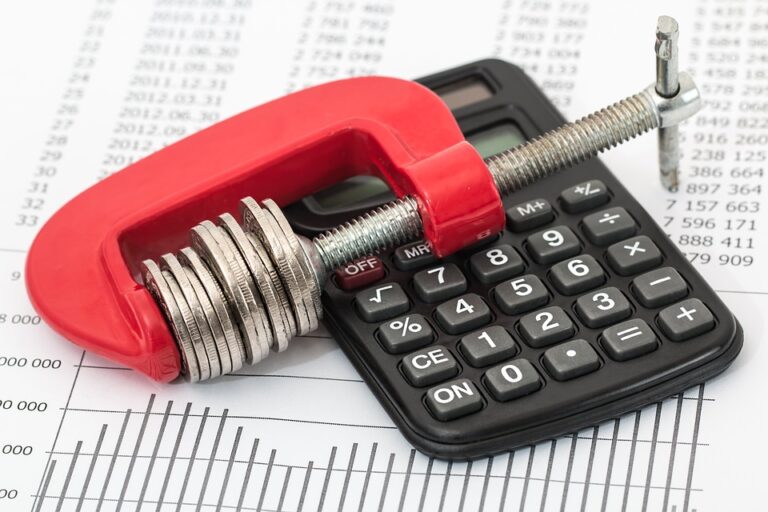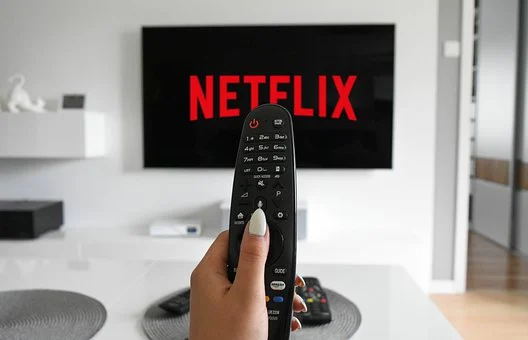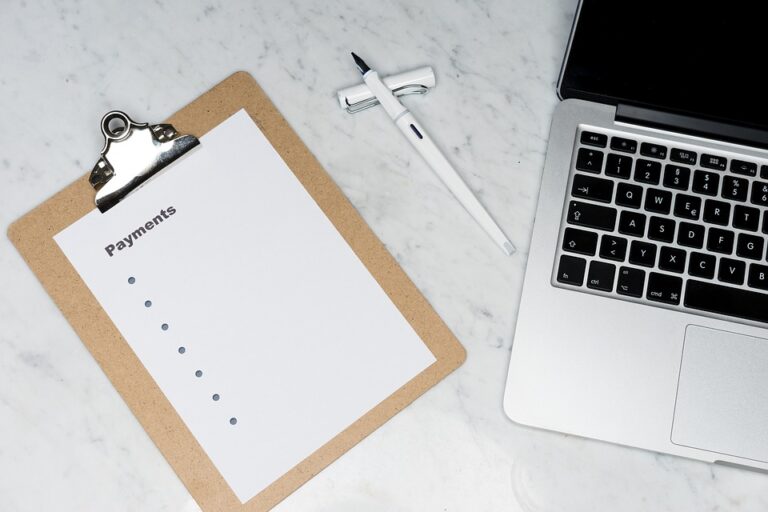Last updated May. 13, 2023 by Favour Chinaza
How To Budget Your Money In 9 (Very Simple) Steps
Most consumers want to know where their money is going each month. A budget can help you feel more in control of your finances and make saving money for your goals easier.
Do you know that having a good budget can help you attain financial freedom? Almost everyone has a specific budget they often stick to while shopping and other daily expenses.
The goal is to find a method of tracking your finances that works for you.
Aside from money budgeted for daily household expenses, people often budget to gain financial freedom. So how can you budget your money to fetch you more income?
In this article, you will see how you can budget your money to increase your profits.
What is Budgeting?
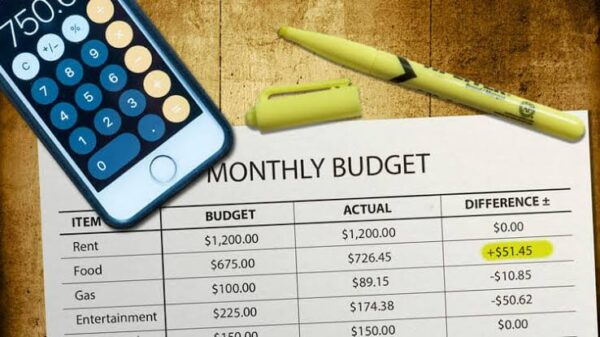
Budgeting is a means of keeping a specific amount of money to satisfy a particular need or want. Hence, you must have a financial purpose before making a budget.
The budget should be specifically channeled to satisfy your financial purpose and help you attain a greater milestone.
Budgeting is essential for managing monthly spending, preparing for life’s unexpected events, and being able to buy big-ticket things without falling into debt.
Keeping track of how much you make and spend does not have to be a chore, does not require you to be a math genius, and does not preclude you from purchasing the items you desire.
It simply implies that you’ll know where your money is going and have more control over your budget.
Good Read: 19 Bad Spending Habits to Avoid if You Want to Build Wealth
Why Make A Good Budget for Your Money?

Making a good budget is one of the best things to happen to you. Creating a budget may appear easier. The major problem is sticking to that budget.
If you intend to monitor the plans you added to the budget, you must be willing to analyze every technique deployed during the process carefully. You can make a good budget following.
Budgeting Can Keep You from Overspending
Before the age of plastic, people usually knew if they were spending more than they could afford.
At the end of the month, they were on the right track if they had enough money to pay their bills and put some away in savings.
People who use their credit cards too much and spend more than they should don’t always know it until they’re deep in debt.
But you’re less likely to be in this situation if you make a budget and stick to it. You’ll know exactly how much money you make, how much you can spend each month, and how much you need to save.
Budgeting Assists you in Achieving Long-term Objectives
A budget helps you think about and work toward your long-term goals.
How will you ever save enough money to buy a car or put a down payment on a house if you go through life without a plan and throw your money at every new and shiny thing that catches your eye?
A budget causes you to write down your goals, save money, keep track of your progress, and turn your dreams into reality.
By making a budget, you can see how much money you make and how much money you spend.
This will help you figure out what you need to do to reach your goal, whether buying a house in a few years or going to graduate school.
Budgeting Prepares You for an Emergency
You can never predict the next plan life has for you. So financial experts have continued encouraging people to develop a good habit of making a budget to take emergencies and unexpected occurrences.
The death of a loved one, natural disasters, and other occurrences can push you into a serious financial crisis.
But when you make great plans for your money, you will always stay ahead and overcome every troubling situation. So it’s also important to know the best and worst places to keep emergency funds.
Keep your Expenses Within your Income
Most people prefer to spend money and live life to the fullest. They never realize the dangers they are causing to their income until quitting their habit is too late.
When you make great plans for your money, you will always keep your daily expenses within your income.
In addition, a good budget will inspire you to cultivate the habit of spending money wisely.
You don’t need a financial advisor to enlighten you on the risks associated with reckless spending.
But unfortunately, some people living in debt find themselves in such a condition because of excessive spending.
You should develop the habit of curtailing your expenses by making a good budget for your money.
Prepares you for the Future
The primary goal of everyone is to gain financial freedom in the Future. No one loves to be indebted or file for bankruptcy.
However, people who neglect to make a budget struggle to succeed in life.
If you want to get prepared for the Future, you must make a budget and find a way to stick to it.
Without good budgets, you will always find yourself struggling to meet your future financial demands. Therefore, you should prepare your mind for the Future.
Save for Investment
If you are considering starting up an investment, you may need to make a specific budget to reach this milestone.
In fact, you can never succeed in future investments without making a huge budget for it. You may have great ideas, but financial support is essential in bringing your ideas to reality.
If you are considering future investments, make a specific budget and work extra hard to fulfill your goals.
Budgeting Helps you Exercising Patience for the long-term goals
Budget prepares your mind to make long-term financial goals. However, if you are not used to making long-term goals, you can develop a habit when making a budget.
As you prepare your mind for making a budget, you will face challenging moments that will make you reconsider your initial goals.
Hence, you should find a way to counter challenges and make it possible to accomplish greater plans.
Can make it easier to save for retirement
It’s important to set aside money for savings and investments on a daily basis.
If you save some of what you earn each month for your individual retirement account (IRA), 401(k), or other retirement fund, you’ll have a nice nest egg by the time you retire.
Even if you have to give up something now, it will be worth it in the long run.
How To Budget Your Money In 9 (Very Simple) Steps
Making a good budget for your money is essential, especially if you hope to gain financial freedom in the Future.
However, almost everyone has a different view when it comes to making a budget for your money.
How do you budget your money? The following 9 very simple steps will enable you to budget your money and attain financial freedom.
Step 1: Determine your Income

Since you are searching for ways to budget your money, you must have a steady income source before making a budget.
If you are undergoing a financial crisis or repaying a heavy debt, you may never think of budgeting your money for the Future.
When you are not making enough income to set you on the path to success, you may consider finding an alternative source of income to earn more.
You can add several side hustles to your main hustle and increase your monthly income.
Low income is one of the limitations to making a good budget for your money. So to avoid limiting your plans, you must find ways to improve your income.
Side hustles you should consider include freelancing jobs, affiliate marketing, and more.
You don’t necessarily have to participate in every side hustle that comes your way. Instead, find a perfect hustle that will not disrupt your main hustle.
Step 2: Determine When to Start Making A Budget
You must figure out when to start making the budget to achieve success. But, unfortunately, creating a budget for your money is not a plan you can wake up to whenever it pleases you.
You are supposed to know what exactly you want before saving a dime. If your income sources are small, you may have to increase them before you think about making a budget.
Scheduling the best time to start may require a lot of critical thinking and good planning. But, on the other hand, poor plans can make you fail to make a great budget for your money.
Therefore, you will need upgraded knowledge about your financial capabilities before getting started with your budget.
Step 3: Set Achievable Goals
Once you have concluded on getting started, you should set up your goals to succeed in budgeting good money. In fact, your entire plans to actualize success must be included in your financial goals.
You don’t have only to mention the goals alone. Go ahead and write them down. Your goals should serve as a guideline to keep you focused in the right direction.
When you fail to set goals for your budget, you may never be opportune to create a budget for your money. Unfortunately, some people do not clearly understand how to plan their goals.
They prefer to make a budget without having any intention at heart. However, when you set goals above or below your financial expectations, you will find it challenging to attain greater heights in life.
So how do you set your goals? Before considering working on a particular goal, clearly understand whether you are pursuing a short-term or long-term goal.
When you are making plans for short-term goals, work hard to achieve them within a year. However, long-term goals can last for years or even decades to achieve.
Most people make short-term goals to buy a new item, invest, and for other purposes.
However, long-term goals are often made to finance bigger investments, fund education, purchase a new house, and fulfill other life goals.
Hence, you must understand what you want before setting any financial goal in life.
Step 4: Monitor Your Spending

Even if you are making hundreds of thousands of dollars per year, reckless spending will never allow you to make a good budget for your money. As a result, you may be trying to cut back your daily expenses.
However, you may end up sending more money than expected. Keeping a close track of your daily expenses is a bold step to take if you are willing to create a change.
If you make up your mind to make a serious adjustment to your regular spending, you need to put a lot of focus on actualizing success in the long run. So how do you monitor your spending?
If you want to create a change, you must start by writing down all your fixed expenses. Items to include in this list must be your essential needs, such as rent, car payment, groceries, and more.
After writing them down, make a specific plan for each item on the list. Keep in mind that items that do not make it to the list must be excluded from your regular expenses.
Therefore, you must analyze your daily lifestyle to see how to generate a great list. This list will help to keep you on track with how you spend your money.
Start with Budgeting Apps
Keep in mind that you can monitor your spending using the budgeting app. Personal Capital and You Need A Budget (YNAB) are among the best budgeting apps you should consider.
Personal Capital is a platform that enables you to curtail your expenses and adds investment strategy to your budget goals.
You Need A Budget (YNAB) is another platform that helps you track your spending closely. You can also track your goals and other financial reports using the platform.
With the services rendered by these platforms, you will realize that budgeting will become more fun for you.
Step 5: Correct Your Spending Habits

Most people cannot correct their frequent spending habits. Almost everyone prefers to buy big cars, live in luxury homes, and enjoy other luxury items life can offer.
If you want to make a good budget for money, you must correct your regular habits and think from a different angle.
And there are bad spending habits to avoid if you want to build wealth. However, you may find it challenging to change your regular lifestyle.
But when you see the essential needs to prepare for the Future, you will be left with no choice but to adjust your regular habit. Your everyday expenses may never be the same with another person.
Therefore, you must closely analyze luxury items and activities that inspire you to spend more money. If you lack the zeal to make the necessary corrections, you may find it changes to succeed.
When you notice that your friends are the primary cause of your lavish spending, find a way to save more money and make a good budget for your money.
Step 6: Make a Financial Plan
One of the habits of broke people is that they don’t have a financial plan. The goals you set earlier should guide you to make proper budget planning. Without a unique plan, you can never attempt to achieve your goals.
Most people are easily distracted from accomplishing their plans. However, if you must make a plan, you must find a way to eliminate every factor that may attempt to stop you from achieving your goals. So how can you make a workable plan?
Before creating a plan, ensure that you clearly understand your goals. If you don’t have great knowledge about bringing your goals to life, you won’t succeed in making proper plans to achieve them.
Your plans should consist of step-by-step tactics you need to budget your money. Then, you can write down these plans and develop a passion for bringing them to life.
After These Budgeting steps, also pay attention to the following:
Step 7: Determine the Average Monthly Cost for Each Expense
List how much you spend on each monthly expense after separating fixed and variable expenses. Bank and credit card statements can be used to track your spending.
Fixed expenses are easier to budget for than variable expenses because the cost is consistent month after month.
For example, mortgage or auto loan debt repayment will cost the same amount each month.
However, fixed utilities like electricity and gas and variable costs like meals and household products frequently shift month to month, so you’ll need to do some math to discover the average.
Determine the average monthly cost for these categories and any others where your spending varies from month to month by looking at three months of spending.
For example, to figure the average amount you spend on groceries, sum up all of your food spending for the last three months and divide by three.
If you notice that you average $433 on groceries each month, round up and set the spending restriction to $450.
Step 8. Make Necessary Changes
The final step in budgeting is to compare your net income to your monthly expenses. If you realize that your spending exceeds your income, you must make changes.
Assume your expenses are $700 greater than your monthly net pay. You should go over your variable expenses and look for ways to save $700.
This may entail reconsidering how much you spend on groceries, household items, streaming subscriptions, and other variable costs.
It’s a good idea to cut these costs and regularly adjust your spending habits to prevent debt. If, on the other hand, you have extra money after deducting your expenses, you can expand certain parts of your budget.
Ideally, you would utilize this extra cash to boost your savings, especially if you don’t have an emergency fund. But instead, you may spend the money on non-essentials such as dining out or travel.
If you don’t already have a high-yield savings account, such as Marcus by Goldman Sachs High Yield Online Savings, consider starting one to earn 16 times more interest than regular accounts.
Step 9. Stick to a Workable Budgeting Method
After creating your initial plans based on your goals, you are supposed to stick to a workable budget to take proper advantage of your money.
While applying this step, you should consider the best type of budget that will work for you.
Keep in mind that not every budgeting method will favor you. So you must know what you want before sticking to a particular method.
Other Necessary Steps to Create a Budget
Revisit Your Goals and Plans
As you continue to use a particular budgeting plan, you should continue to revisit your goals to remain on the right track. Unfortunately, most people lack the skill to remain focus to make a real budget.
If you continue to look ahead without making a turnaround to analyze the progress made so far, you may likely make mistakes along the line.
The essence of cross-checking the effort made so far is to improve your expertise and financial literacy.
You should understand how to make your money work for you to benefit from any goal you are working with.
Learn to Fill the Loopholes
The ability to determine how to budget your money without failure is a unique skill on its own. However, since money is involved, many people may never understand ways to make it work perfectly for them.
If you cannot separate your wants from your needs, you may never detect any loophole while making budget plans. The loophole can exist in various forms.
Even if you control your reckless spending and other habits that motivate you to waste money, you may likely experience this loophole.
For example, if you make a budget of $10 to purchase edible fruits in the market, but you realize that you may have visitors by the weekend.
You may likely increase the budget to $20 to accommodate your visitors. However, removing the extra $10 from your savings will lower your chances of sticking to a proper budget.
If you can access your emergency fund, you may take the money from there.
Or take it from the account where you save money for your wants. But, again, your ability to understand where to take the extra money is what will determine your ability to fill the loopholes.
What are The Best Budgeting Methods?
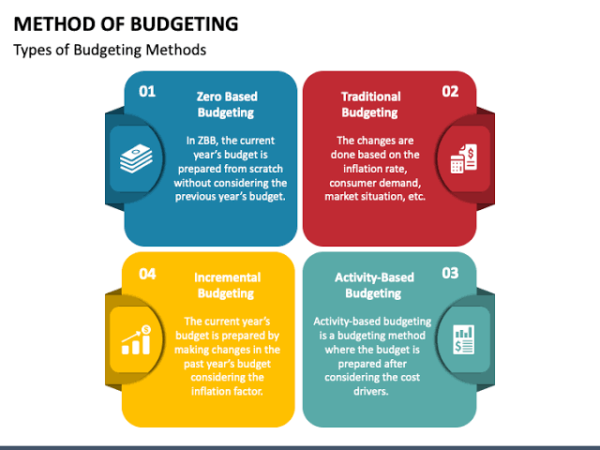
The best four budgeting methods you may consider:
50/30/20 Budgeting Method
This budgeting method enables you to channel 50% of your income to pay for our essential needs, such as utilities, housing, and more.
It also allows you to use 30% of your wants, and 20% will cover your savings, clearing debts, school, and other purposes. So you can deploy this method to improve your chances of taking advantage of your money.
Zero-Based Budgeting Method
The zero-based budget enables you to assign every penny you own to something vital. Hence, you can equalize your expenses to your regular income.
This method lets you make a good budget and use your money wisely. To deploy the zero-based budgeting method effectively, you will not use your cash to pay for every service.
Hence, you must pay close attention to details if you want to use the Zero-based budgeting plan effectively. You should never create room for minor errors, as everything must be professionally analyzed.
As you deploy this method, ensure that you make plans for emergency funds to avoid using your savings for emergency needs.
Envelope System
The envelope system allows you to keep away money for each expense. Hence, you are required to prepare a list of your spending category to guide you on how to direct your money wisely.
You are meant to put aside the money to satisfy every item that made it to the expense list. Therefore, you should never use money meant for a particular purpose to fulfill another need.
Two-Account Budgeting Method
The two-account budgeting method allows you to sum up your fixed monthly spending before dividing the total amount with paychecks you get at every month-end.
After making this calculation, put the amount in a particular bank account and separate it from the second account.
The money going into the second account should satisfy your wants and other expenses.
How to Create a Comprehensive Budget
You’ll need to know how to establish a budget now that you’ve learned the steps.
We’ve explained the fundamentals of creating a complete budget below. Some of the data presented here have already been explored. But it’s worth repeating.
- Determine your entire monthly income. This includes any wages, salaries, tips, benefits, and any money you receive every month.
- Determine your typical monthly expenditures. Some of these are predictable, making it easier to work with them, especially if they don’t alter every month.
Consider your mortgage or rent, utility payments, transportation charges, and other such costs. In addition, some costs, such as food and clothing, may vary from month to month.
It’s always a good idea to err on the side of caution and budget a little higher in these situations. Include your debt, such as loans and credit card bills.
- Plan for any extras, such as spending money if you want to eat out, order takeout, go to the movies, or do anything else.
- Make a note of any amount you intend to set aside for savings if that is part of your strategy.
Now that you have these data, calculate and write down your strategy. A budget does not (and cannot) work until it is on paper.
You’ll be more motivated to remain with it if you see it. You may need to do some juggling, particularly in the first several months.
This entails making little adjustments to stay within your budget. However, after you’ve over this hurdle, the rest of the process should be quite trouble-free.
Pros and Cons of Budgeting

- Controls spending and saving by allowing you to choose which budget categories to include and how much to spend in each. You may also create a regular savings habit if you commit to saving towards a specific named savings account (such as “Hawaii Vacation”).
- Budgeting aids in tracking expenses: If you have a problem with overspending, a budget can help you discover potentially detrimental spending habits and minimize unneeded purchases.
- Budgets can alleviate financial stress: A budget can alleviate financial stress by providing a tool for planning and developing emergency reserves, providing added peace of mind when an unexpected expense arises.
Cons of Budgeting
- Budgeting feels constricting: One of the most significant budgeting challenges many people experience is the feeling that they are somehow limiting themselves. To counteract this, make room in your budget for “fun money” so you don’t feel deprived.
- You need considerable commitment to creating a budget: Budgets can help you gain financial control—but only if you stick to your plan. You may not get the benefits of budgeting if you are not devoted to it.
- Budgeting can depend on your impulse control: If you’re used to spending money whenever you want, you may need to develop new habits, such as reviewing your budget before going out with friends or buying new clothing.
What are the Next Steps after Creating a Budget?
The next step after making a budget is to stick to it. There are several strategies to hold yourself accountable.
First, when you reach a certain spending limit, you can set up reminders with your credit card and bank accounts.
You should also try recording all of your spending in a spreadsheet or budgeting tool immediately after making a purchase.
And, if you split spending with someone else, ensure you’re both on the same page with the budget and keep each other accountable.
Tips To Stick To Your Budget
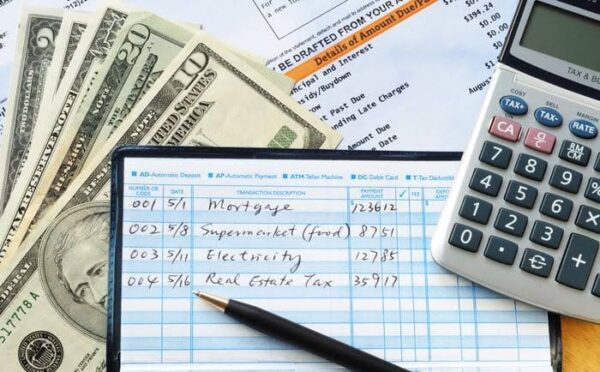
You can easily create a budget without much stress. However, you need certain skills to maintain that budget and attain bigger goals.
When you cannot keep to your budget, your money will never be useful to satisfy your future needs and wants. You can stick to your budget in the following ways;
Tip. #1 Embrace the Ongoing Process of Budgeting
Most of the time, we think of planning as a one-time job. You get your bills and papers and sit down.
You figure out how much money you have spent. Then, you plan how much you will spend in the Future.
The best way to set yourself up for budgeting success is to accept that budgeting is the long-term plan you’ll use to live the life you want financially.
Instead of considering budgeting a one-time or occasional job, it’s better to consider it a regular maintenance task, like doing your laundry.
The best way to set yourself up for budgeting success is to accept that budgeting is the long-term plan you’ll use to live the life you want financially.
Instead of considering budgeting a one-time or occasional job, it’s better to consider it a regular maintenance task, like doing your laundry.
Like taking care of your money, doing your laundry is an ongoing task you can’t avoid, ignore, or forget without facing serious consequences.
Keeping your new budget is much more important than just making one.
Tip #2. Plan Towards the Future
When you always think about the Future, you will be inspired to stick to your budget. Therefore, everything concerning the Future should excite you to improve your inspiration.
You should make a specific budget to take care of emergency needs that may arise in the Future. You must always look ahead at all times.
Tip #3. Be Real with Your Budgeting
When you attempt to lie to yourself, you will never make progress in life. But when you are real to yourself, you will easily stick to your budget.
Being realistic simply implies that you must work with only applicable goals. Never attempt working with unrealistic goals, as you may be devastated at the end.
Tip #4. Cut ties with Old Spending Habits
First, find out the causes of overspending and how to avoid it. Next, you must separate yourself from your previous spending style to tap into the unlimited opportunities associated with budgeting.
It may come as an easy process. But when you are determined, you can make a change.
Tip #5. Add “Pay Yourself” To Your Budget Category
Paying yourself means putting money toward your financial goals and plans before you spend your extra cash.
People often forget to include these kinds of goals in their budgets because they think they can reach their goals with whatever money is “leftover” at the end of the month.
But your goals are often left out your goals are often left out. So, the next step in making a budget that can last is to make budget lines for your big financial goals.
Once you’ve picked your goals, figure out how much you’ll put toward each one every month.
If you want to reach your goal by a certain date, split the amount of money you’ll need by the number of months left until the date. This will give you the amount you need to save each month.
You should add these amounts to your set costs. Putting your financial goals in your monthly budget as fixed costs will help you get in the habit of putting them in order of importance.
Tip #6. Avoid Incurring Debt
Debt can disrupt your budget plans entirely. Hence, avoid it by all means. You need unique planning to escape all forms of debt options. The essence of creating emergency funds is to give you a boost toward avoiding debt in the Future.
Find a Budgeting System that Works For You
First, you should figure out what your financial goals and aims are. This will help you determine what budgeting method will work best for you. For example, a debt payback plan might be better than a simple budget if you are trying to pay off debt.
Next, you can look into different ways to make a budget. Some of the most famous choices are:
The envelope method is when you put your money into physical envelopes that are labeled with things like “food,” “rent,” and “fun.” The money in each envelope can only be used for what it says on the envelope.
The 50/30/20 rule says you should spend 50% of your income on things you need, 30% on things you want, and 20% on savings or debt.
The zero-based budgeting is when you keep track of every penny of your income and put it into different categories or costs so that you have no extra money.
The app-based budgeting is when you track your spending and income with a budgeting app or software.
The spreadsheet system is when you use Excel or Google Sheets to make your own budgeting spreadsheet to keep track of your spending.
Ultimately, the best budgeting method for you is the one you can stick to, which helps you reach your financial goals. Therefore, it’s important to look at your budget often and make changes as needed to ensure it’s still helping you reach your goals.
Good Read: Tiller Money Review: Automated Spreadsheets To Make Budgeting Easier
Bottom Line
As you use the easy steps above to make a budget, ensure you don’t get into debt. When it’s hard to stay out of debt, you might miss out on future chances. You have to think outside the box to make a good budget for your money.
The best way to set yourself up for budgeting success is to accept that budgeting is the long-term plan you’ll use to live the life you want financially. So instead of considering budgeting a one-time or occasional job, it’s better to consider it a regular maintenance task, like doing your laundry.
Frequently Asked Questions
Q: How do you figure out a budget?
Begin with a financial self-evaluation. Then, choose a budgeting strategy that works for you after you know where you stand and what you want to achieve. We advocate the 50/30/20 strategy, which divides your income into three key categories: requirements, wants, savings, and debt reduction.
Q: How do you keep a budget?
The key to sticking to a budget is to keep track of your spending on a regular basis so you can have a clear picture of where your money is going and where you’d like it to go instead. Here’s where to begin:
1. Examine your bank statements and categorize your expenses.
2. Maintain consistency in your tracking.
3. Determine where there is potential for improvement. Budgeting can be simplified by using free online spreadsheets and templates.
Q: What is the difference between yearly and monthly budgets?
Monthly budgets break out your revenue and expenses month by month. Yearly budgets examine all revenue and expenses over the course of a year. An annual budget might be useful if your income or costs change significantly by month or season (for example, if you work as a freelancer) and you need to look at the big picture. Yearly budgeting can also be valuable for monthly budgeters, but only for seeing the larger picture. Monthly budgets may better reflect your current actual income or expenses.
Q: Why is a budget important?
Budgets are necessary for tracking expenses and income, detecting spending trends, generating savings, and staying out of debt. A budget is a financial plan or blueprint for managing your money; without one, you may be more prone to overspending or incurring debt.
Q: How do you make a budget spreadsheet?
Begin by calculating your take-home (net) income, then assess your present spending. Finally, follow the 50/30/20 rule: allocate 50% of your income to needs, 30% to wants, and 20% to savings and debt reduction.
Q: What is a budgeting app?
A budgeting app is a software application for your computer or mobile device with varying functionalities. Most budgeting apps let you build a monthly budget and may even link with your bank and credit card accounts to reconcile transactions. Some will also keep track of your savings, debt repayment, and investments.
Q: What are some key reasons to have a budget?
Depending on the individual, there are numerous reasons to create a budget. A budget can frequently aid in the development of financial independence and freedom. A budget can also help you achieve your financial objectives by helping you spend within your means, save for retirement, develop an emergency fund, and analyze your spending habits.


